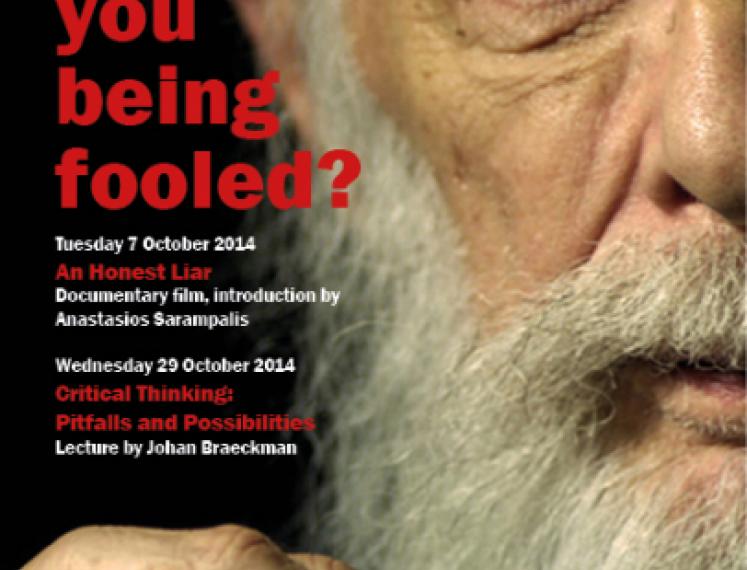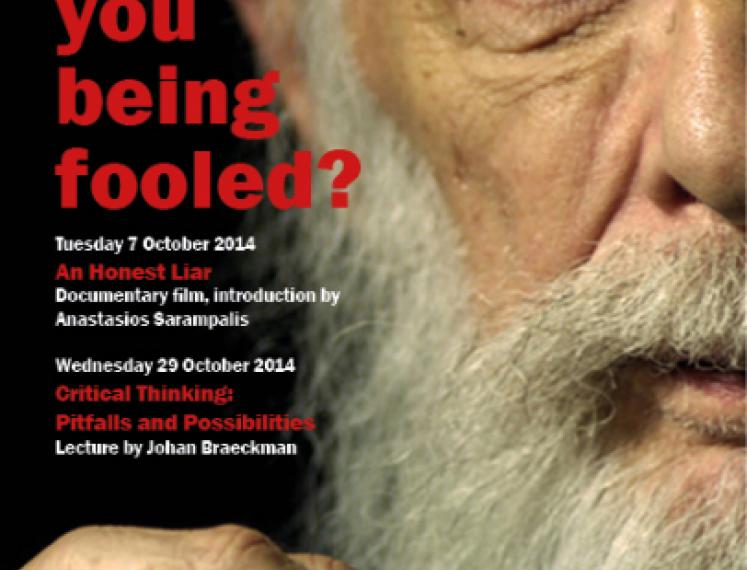Academiegebouw
Broerstraat 5
Groningen
Netherlands
Critical Thinking: Pitfalls and Possibilities
Research shows that clear and critical thinking is much harder than we presume.
Most people think they know how to think. Most of us believe we have good reasons and arguments for our beliefs, and we tend to be sceptical about belief systems that are exotic or strange from our perspective. In other words, we think that we are able to think critically. It seems easy enough, from an intuitive point of view. Nevertheless, research shows that clear and critical thinking is much harder than we presume. Some people are so critical that they reject everything that science has to offer. Clearly, something went wrong. But all of us are vulnerable for mental infection with bad, pseudoscientific and superstitious ideas. Philosopher Johan Braeckman will give examples to prove the point that our brain can rapidly and easily be fooled (or rather: fool itself), and offer ways to enhance our critical thinking skills.
Johan Braeckman is a Flemish philosopher. He is professor in philosophy at the University of Ghent and University of Amsterdam, and an editor of Skepp. His research, conducted along with a dozen doctoral and postdoctoral researchers, focuses on the philosophical problems associated with the life sciences, in particular the evolutionary theory and neuroscience.



